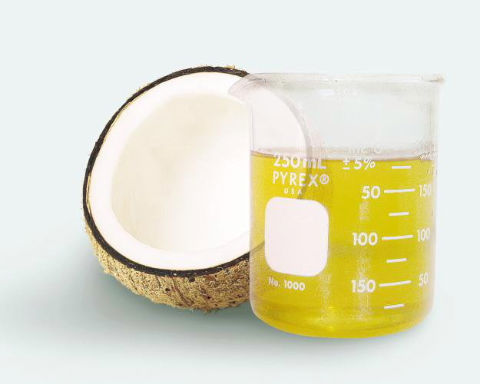Coconut Oil Benefits And Side Effects

Coconut oil is one of the oldest oils that people currently use. However, today some people are afraid to consume it because they have heard that coconut oil has side effects.
Coconut oil is a natural oil that is extracted from fresh coconuts. It does not contain trans fats or partially hydrogenated oils. Many Pacific Islanders believe that coconut oil is the best remedy for the treatment of all diseases.
Bad Reputation
Coconut oil is considered to be a saturated fat. 92% of fats in coconut oil are saturated fats (butter contains 66% saturated fats). This is exactly what disturbs many people who know that a high intake of saturated fats increases the risk of heart disease and other cardiovascular diseases.
Not All Saturated Fats Are Bad For Your Health
To date it is known that not all saturated fats are the same. Earlier they were considered bad, until it was discovered that unsaturated fats had helped protect the heart and increase the level of HDL (good cholesterol).
Saturated fats are usually composed of short chains of fatty acids, while tropical coconut oil consists of medium-chain fatty acids. Coconut oil is digested faster and easier than other foods containing saturated fats.
Animal fats mainly consist of palmitic and myristic acids, while vegetable saturated fats contain large amounts of lauric and stearic acids. Those acids are considered to be very healthy. Lauric acid has antimicrobial, antiviral and antibacterial effects which kill bad bacteria and contribute to an increase in good bacteria – which is important for the digestive tract.
Thus, the saturated fats in coconut oil are completely different than the saturated fats in fast foods such as, French fries and donuts.
Coconut Oil’s Nutritional Value
One tablespoon of coconut oil contains 125 calories and 14 grams of fat, of which 13.5 g is saturated fat, 0 g of trans fat and 0.5 g of unsaturated fats. Saturated animal fats contain cholesterol, but vegetable saturated fats do not.

Coconut Oil’s Benefits
- Strengthens teeth and the skeletal system: people who consume coconut oil daily, rarely suffer from osteoporosis
- Helps to better the absorption of nutrients and minerals (calcium and magnesium)
- Helps burn fat
- Normalizes blood sugar
- Strengthens the immune system
- Is a preventive measure against diseases of the genitourinary system (including the serious disease: prostatitis)
- Helps to resist viruses and bacteria that cause diseases such as, hepatitis, influenza, and even HIV
- Improves cardiovascular and digestive system
- Facilitates the flow of psoriasis
- Normalizes the menstrual cycle in women
- Helps in hypoglycemia
Coconut Oil’s Side Effects
Just like any other food product, coconut oil should be used with caution if one has weak peristalsis of the digestive tract, as well as, individual intolerance to the product.
Caution! It is always important to read the label on the coconut oil to make sure that coconut oil is the only ingredient and that it has no added chemical substances.